Product
Sodium Alginate Price Trend and Forecast
Sodium Alginate Price Trend and Forecast
Sodium Alginate Regional Price Overview
Get the latest insights on price movement and trend analysis of Sodium Alginate in different regions across the world (Asia, Europe, North America, Latin America, and the Middle East & Africa).
Sodium Alginate Price Trend for Q1 of 2025
During the first quarter of 2025, the sodium alginate market experienced fluctuations, primarily due to changes in seaweed availability, the key raw material for its production. The year began with firm prices, as seaweed crops were in full production in major regions such as Japan and India. However, market conditions shifted when wildfires in Ofunato City, Japan, disrupted the wakame seaweed harvest, causing temporary supply concerns and price fluctuations. Fortunately, as harvesting resumed, prices stabilized, easing the initial pressure.
Sodium Alginate Price Chart
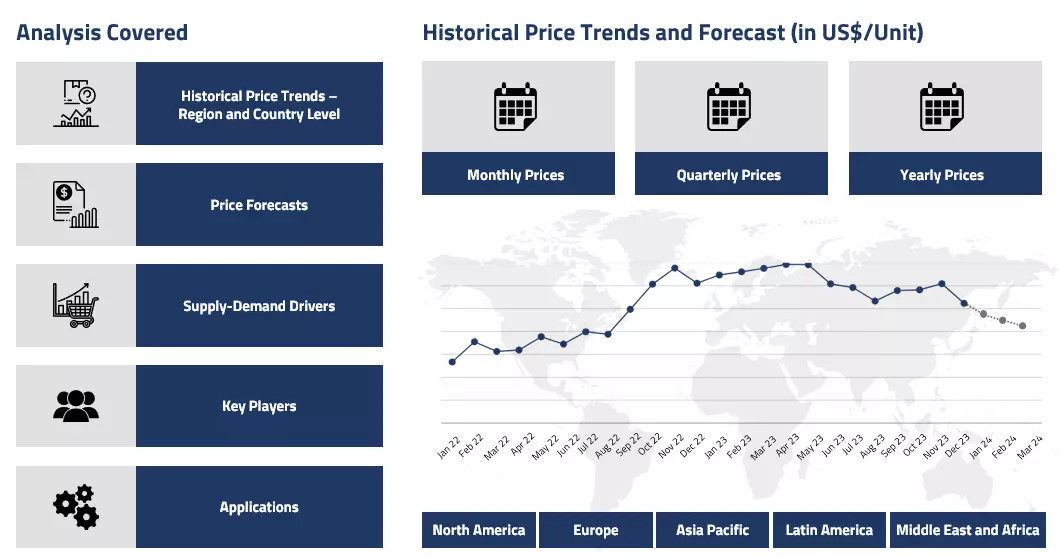
Please Login or Subscribe to Access the Sodium Alginate Price Chart Data
In India, the seaweed farming industry continued to develop, supported by government initiatives and local investments. These efforts ensured a stable supply and mitigated the risk of severe disruptions in the international sodium alginate market. Although India's seaweed production was still in its early stages, improvements in farming techniques helped maintain a steady flow of raw materials.
By the end of Q1 2025, the sodium alginate market stabilized. Supply remained steady, while demand from the food, pharmaceutical, and cosmetic industries persisted, preventing any significant price shifts. Despite earlier disruptions, the market demonstrated resilience, closing the quarter in a stronger position.
Analyst Insight
According to Procurement Resource, sodium alginate prices are likely to sustain similar price movements in the coming months too as the demand projections appear supportive.
Sodium Alginate Price Trend for the Second Half of 2024
In the latter half of 2024, the sodium alginate industry experienced notable price fluctuations, primarily due to ongoing challenges in seaweed cultivation, the key raw material used in its production. Adverse weather conditions, including heavy storms and excessive rainfall in certain regions, disrupted seaweed collection, leading to irregular supply levels. As a result, producers struggled to meet demand, creating volatility in the market.
The American seaweed farming industry also faced difficulties, with major companies such as Running Tide and AKUA shutting down due to economic pressures and a lack of institutional support. These closures dealt a significant blow to the sector, especially since U.S. seaweed farming remains in its early stages and has not yet reached the scale of established producers such as Japan and South Korea. Without strong investment and well-defined government regulations, many U.S. seaweed farms were unable to expand or sustain their operations.
Globally, the sodium alginate market remained relatively stable, but the U.S. struggled to establish itself as a viable player in the seaweed sector. The lack of consistent support and regulatory frameworks made it difficult for domestic companies to maintain their foothold, further complicating the creation of a reliable sodium alginate supply chain.
Analyst Insight
According to Procurement Resource, the sodium alginate price curve is likely to witness fluctuations in the upcoming months driven by the challenges in the seaweed industry.
Sodium Alginate Price Trend for the First Half of 2024
Sodium alginate prices are influenced by various factors, including raw material costs, environmental considerations, and international market trends. The primary raw material, brown seaweed, is sensitive to climate conditions, leading to price fluctuations based on yield. Advancements in seaweed varieties and environmental regulations have also driven prices upward. Additionally, international market conditions and the demand for seaweed in aquaculture, particularly abalone farming, have contributed to price volatility.
In Japan, seaweed harvests have dropped to near-record lows, driven by rising global demand for Japanese food and poor environmental conditions, causing prices to surge. Wakame production in the Sanriku region, responsible for over 70% of Japan's output, fell 30% this year due to storms and high sea temperatures. As a result, seaweed prices are rising across the board, impacting the prices of sodium alginate as well. The upstream cost pressure remained high throughout the first half of 2024 for sodium alginate.
Analyst Insight
According to Procurement Resource, Sodium Alginate prices are likely to remain inclined in the coming months; the market projections are looking positive.
Sodium Alginate Price Trend for the Second Half of 2023
Raw materials are crucial in determining the price of sodium alginate, with brown seaweed being the primary raw material. The cost and availability of brown seaweed, which is highly sensitive to climate conditions such as temperature changes and strong winds, directly influence sodium alginate prices.
During the third and fourth quarters of 2023, the producers of sodium alginate noted that adverse weather conditions, like low temperatures or typhoons, significantly reduced seaweed yields, leading to higher prices. The price fluctuations in seaweed are not only due to supply constraints but also advancements in seaweed varieties.
Recent investments by aquaculture companies and marine research institutes have produced superior seaweed varieties with excellent characteristics and higher yields. These new varieties are in high demand, further driving up seaweed prices. Consequently, the price of sodium alginate is affected by these dynamics, with both limited availability and improved quality of brown seaweed contributing to price increases.
Analyst Insight
According to Procurement Resource, the price of Sodium Alginate is expected to expand with the advancements in the aquaculture industries and consumer base in the near adjacent quarters.
Sodium Alginate Price Trend for the First Half of 2023
Sodium Alginate prices rely on the feedstock alginate to a great extent, and the alginate is sourced from seaweed, so the price trend also varied with the seaweed production and prices during the said period.
As the Asian continent counts as the biggest seaweed-producing and exporting region, the production yield here set the tone for Sodium Alginate prices worldwide. During early 2023, the climatic disruptions affected the agricultural produce as the uneven, unseasonal rainfalls with several strong typhoons resulted in disrupted growth, causing a severe supply curtailment.
Thereby raising the upstream costs for Sodium Alginate throughout the discussed period. However, dull downstream demands from the pharma, textile, etc. industries kept the market anchored. So, overall, the Sodium Alginate market remained afloat with fluctuating patterns in the initial two quarters of 2023.
Analyst Insight
According to Procurement Resource, the price trend for Sodium Alginate are expected to continue fluctuating in a similar manner in the upcoming months, given the volatilities in the upstream costs and downstream demands.
Sodium Alginate Price Trend for the Second Half of 2022
Asia
Sodium alginate is obtained from seaweeds whose prices fell in the Asian Pacific region in the said period. The demand from the domestic sector remained bearish throughout the quarters and the ripple effects of covid restrictions in China had a major negative impact on the price trend of sodium alginate. In addition to this, the decrease in demand from the end-sector market further aided the fall in prices.
Europe
The European region showed fluctuations in the price trend of sodium alginate as the prices of related algae-obtained products declined in the region. The main cause of this decline was the reduced demand for the commodity, high input costs, and adverse effects from the ongoing Russia-Ukraine war. In addition to this, the fourth quarter also witnessed a rise in the prices of raw materials and fluctuating market dynamics. The uncertainties in the market along with weak demand from the end-sector industries led to the declining trend of algae products such as sodium alginate.
North America
The North American market showed conflicting price trend for sodium alginate in the last two quarters of 2022. The decline in prices was attributed to the weak demand from the end-user industries and the rise in inventories in the region. The prices of feedstock material also plummeted in the US, fueling the declining price trend. However, the demand rose towards the end of the fourth quarter due to improvements in consumer demand, low stock availability and sufficient supply from the manufacturers.
Analyst Insight
According to Procurement Resource, the price trend for sodium alginate are likely to fluctuate in the upcoming months. This fluctuating trend will attribute to the uncertain market dynamics, oscillating demand from end-user industries and high input costs.
Sodium Alginate Price Trend For the First Half of 2022
Alginate, also known as alginic acid is an organic substance that is obtained from seaweed. The price of seaweed (used as a feedstock )determines the global sodium alginate price patterns. The vast bulk of the world's seaweed demand is satisfied by Southeast Asia.
Indonesia is the world's largest producer of seaweed, but recent price fluctuations have made it challenging for farmers to make a livelihood. Because China is the largest country that processes seaweed, China's strong demand is a major factor in feedstock pricing.
The Chinese government's zero-tolerance covid regulations had a negative impact on the manufacturing sector. Even once restrictions were lifted, the turnaround was not ideal since high pricing and supply-side restraints negatively impacted market demand sentiment.
The price of seaweed in Indonesia was adversely impacted by the decline in Chinese demand, which also had an impact on the price trend of sodium alginate. The Indonesian government's export limitations as well as the devaluation of the currency against US dollars caused seaweed prices to further collapse. Seaweed cost 2.97–4.21 USD/kg in China whereas it cost 3.5–6.87 USD/kg in Europe.
However, due to increased demand on the local US market, seaweed prices were somewhat increased, averaging 10.55 USD/kg. Due to consistent demand from the pharmaceutical and dental industries, sodium alginate pricing managed to stay afloat in the worldwide market despite fluctuating trend in seaweed prices.
Procurement Resource provides latest prices of Sodium Alginate. Each price database is tied to a user-friendly graphing tool dating back to 2014, which provides a range of functionalities: configuration of price series over user defined time period; comparison of product movements across countries; customisation of price currencies and unit; extraction of price data as excel files to be used offline.
About Sodium Alginate
Sodium alginate (NaC6H7O6) is a 1,4-D-mannuronic (M) and L-guluronic (G) acid-based linear polysaccharide derivative of alginic acid. A component of marine brown algae's cell walls, sodium alginate includes between 30 and 60 percent alginic acid. Alginac acid is transformed into sodium alginate, which makes it water soluble and facilitates extraction. Only two bacterial genera, Pseudomonas and Azotobacter, can produce bacterial alginates, which are employed for adhering to surfaces and protecting cells from the environment by creating biofilms.
Sodium Alginate Product Details
| Report Features | Details |
| Product Name | Sodium Alginate |
| HS CODE | 39131010 |
| CAS Number | 9005-38-3 |
| Industrial Uses | used as a hydrocolloid in various applications such as food manufacturing, pharmaceuticals and in textile use in tissue engineering |
| Chemical Formula | C6H9NaO7 |
| Synonyms | Natrium glucuronate |
| Molecular Weight | 216.12 g/mol |
| Supplier Database | The JRS Group, Ltd, KIMICA Corporation, Maabarot Products Ltd, Ashland Inc. |
| Region/Countries Covered | Asia Pacific: China, India, Indonesia, Pakistan, Bangladesh, Japan, Philippines, Vietnam, Iran, Thailand, South Korea, Iraq, Saudi Arabia, Malaysia, Nepal, Taiwan, Sri Lanka, UAE, Israel, Hongkong, Singapore, Oman, Kuwait, Qatar, Australia, and New Zealand Europe: Germany, France, United Kingdom, Italy, Spain, Russia, Turkey, Netherlands, Poland, Sweden, Belgium, Austria, Ireland Switzerland, Norway, Denmark, Romania, Finland, Czech Republic, Portugal and Greece North America: United States and Canada Latin America: Brazil, Mexico, Argentina, Columbia, Chile, Ecuador, and Peru Africa: South Africa, Nigeria, Egypt, Algeria, Morocco |
| Currency | US$ (Data can also be provided in local currency) |
| Supplier Database Availability | Yes |
| Customization Scope | The report can be customized as per the requirements of the customer |
| Post-Sale Analyst Support | 360-degree analyst support after report delivery |
Note: Our supplier search experts can assist your procurement teams in compiling and validating a list of suppliers indicating they have products, services, and capabilities that meet your company's needs.
Sodium Alginate Production Processes
- Production of Sodium Alginate from Alginic Acid Method
In this method, chopped wet seaweed is treated with diluted formalin to create sodium alginate solution. To separate the sodium alginate solution from the seaweed residue, sodium carbonate is next added. Alginate acid is created by mixing sodium alginate solution with hydrochloric acid, followed by the removal of water. Alginic acid is combined with sodium carbonate and alcohol to create sodium alginate. The powdered form is eventually achieved when it has been dried and ground.
Methodology
The displayed pricing data is derived through weighted average purchase price, including contract and spot transactions at the specified locations unless otherwise stated. The information provided comes from the compilation and processing of commercial data officially reported for each nation (i.e. government agencies, external trade bodies, and industry publications).
Assistance from Experts
Procurement Resource is a one-stop solution for businesses aiming at the best industry insights and market evaluation in the arena of procurement. Our team of market leaders covers all the facets of procurement strategies with its holistic industry reports, extensive production cost and pre-feasibility insights, and price trends dynamics impacting the cost trajectories of the plethora of products encompassing various industries. With the best analysis of the market trends and comprehensive consulting in light of the best strategic footstep, Procurement Resource got all that it takes.
Client's Satisfaction
Procurement Resource has made a mark for itself in terms of its rigorous assistance to its clientele. Our experienced panel of experts leave no stone unturned in ensuring the expertise at every step of our clients' strategic procurement journey. Our prompt assistance, prudential analysis, and pragmatic tactics considering the best procurement move for industries are all that sets us apart. We at Procurement Resource value our clients, which our clients vouch for.
Assured Quality
Expertise, judiciousness, and expedience are the crucial aspects of our modus operandi at Procurement Resource. Quality is non-negotiable, and we don't compromise on that. Our best-in-class solutions, elaborative consulting substantiated by exhaustive evaluation, and fool-proof reports have led us to come this far, making us the ‘numero uno' in the domain of procurement. Be it exclusive qualitative research or assiduous quantitative research methodologies, our high quality of work is what our clients swear by.
Table Of Contents
Our Clients
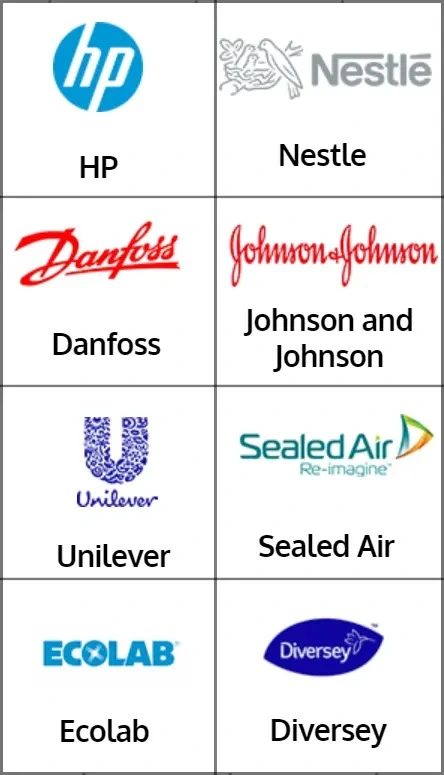
Get in Touch With Us
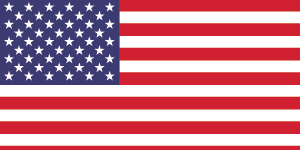
UNITED STATES
Phone:+1 307 363 1045
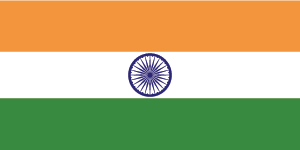
INDIA
Phone: +91 8850629517
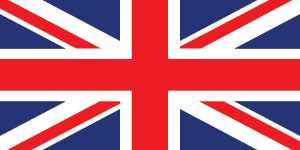
UNITED KINGDOM
Phone: +44 7537 171117
Email: sales@procurementresource.com

